

|
|
|
|
The Libretto is a line of subnotebook computers designed and produced by Toshiba. The line was distinguished by its combination of functionality and small size, squeezing a full Windows PC into a device the size of a hardback book. The first model, the Libretto 20, was released on April 17, 1996, with a volume of 821 cm³ and weighing just 840 g. The original Libretto line was discontinued in Europe and the U.S. in 1999 The Toshiba Libretto was used as the "Palm-top" in the film Total Recall 2070, with it being marketed in the show as a Toshiba EPK 2000 Organizer. ModelsThere are several different models. Originally, they used 486 processors from Advanced Micro Devices (AMD). These early models were only available in Japan. Beginning with the Libretto 50, they used the Intel Pentium and Pentium MMX processors. This Libretto 110CT came out around the
end of 1998. Including peripherals like the external PCMCIA floppy
drive (350 gr.), port replicator (150 gr.), power supply (100 gr.),
power cord and other stuff it weighs almost 2 kilograms (the thing
itself about 1.2 kilograms). It comes equipped with a 4.3 Gb harddisk
partitioned into two FAT16 partitions of about 2 Gb each. Unless one
takes care of saving the installation files somewhere, one must make a
choice between Windows 98 and Windows 95. The selected operating system
will be installed and the other option deleted forever (again,
unless...). As both partitions are FAT16 and the second partition of
2000 Mb is only used for scratch, considerable space is wasted. Specs (110CT)
|
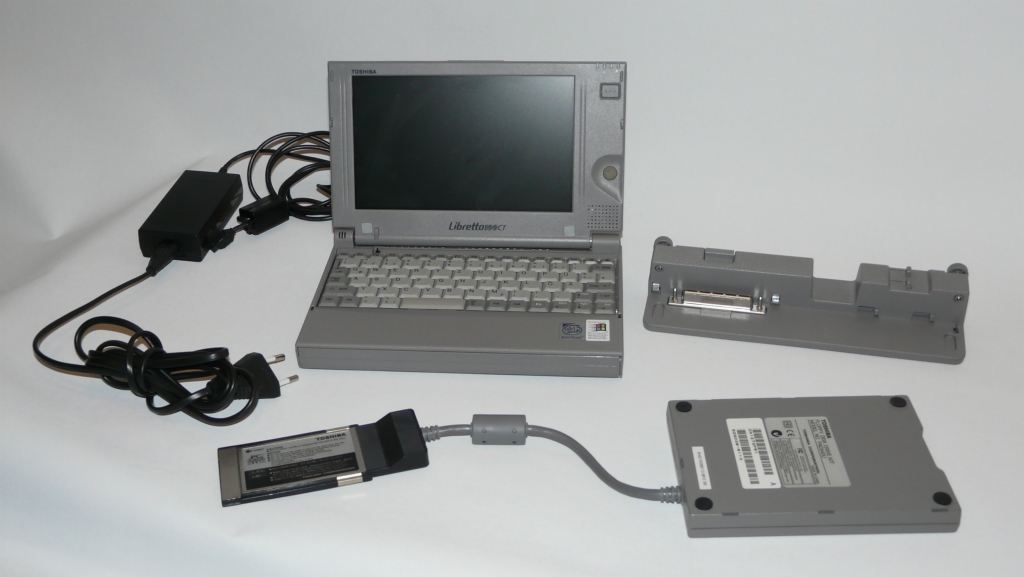
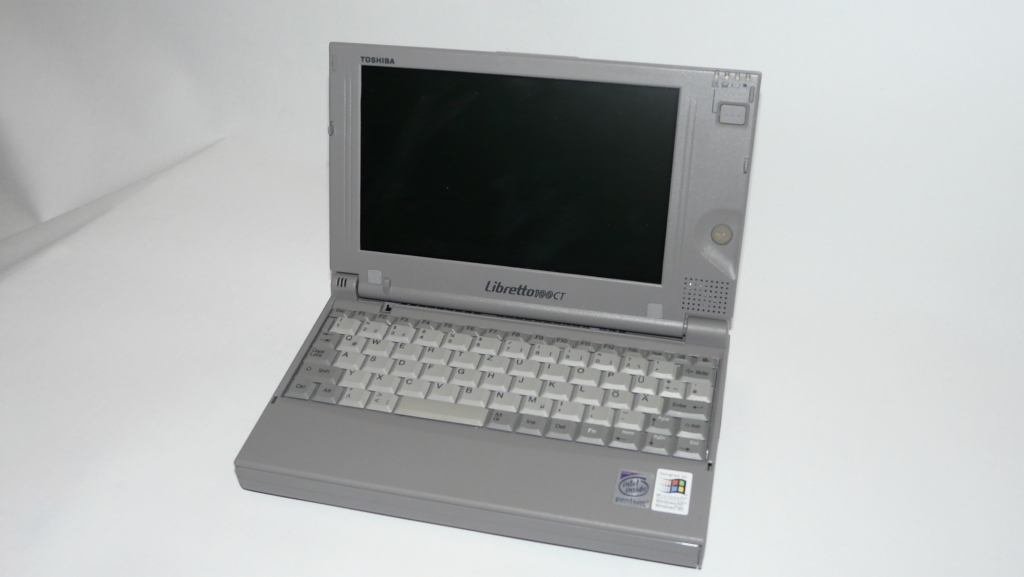
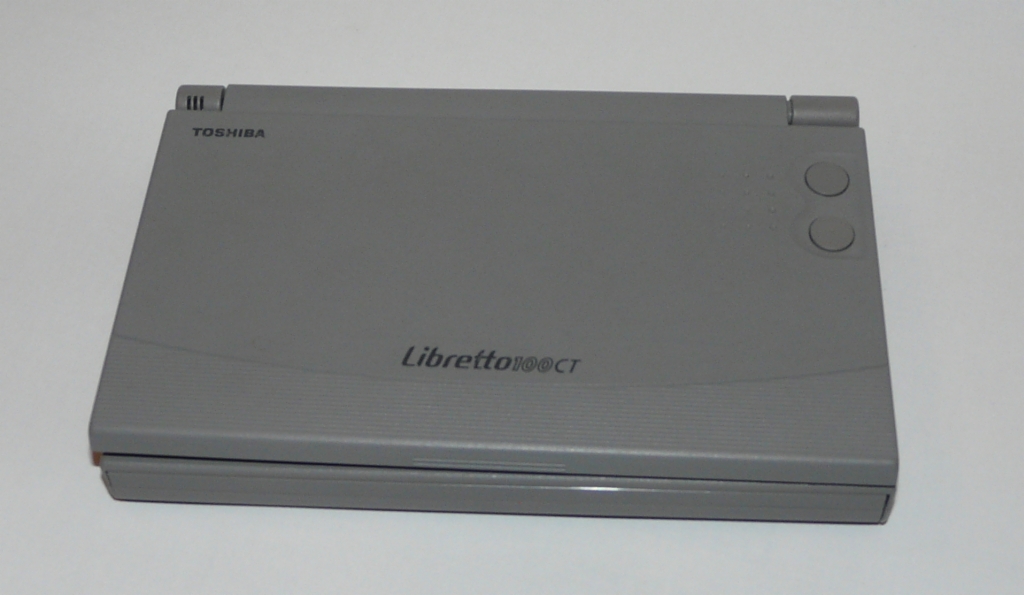
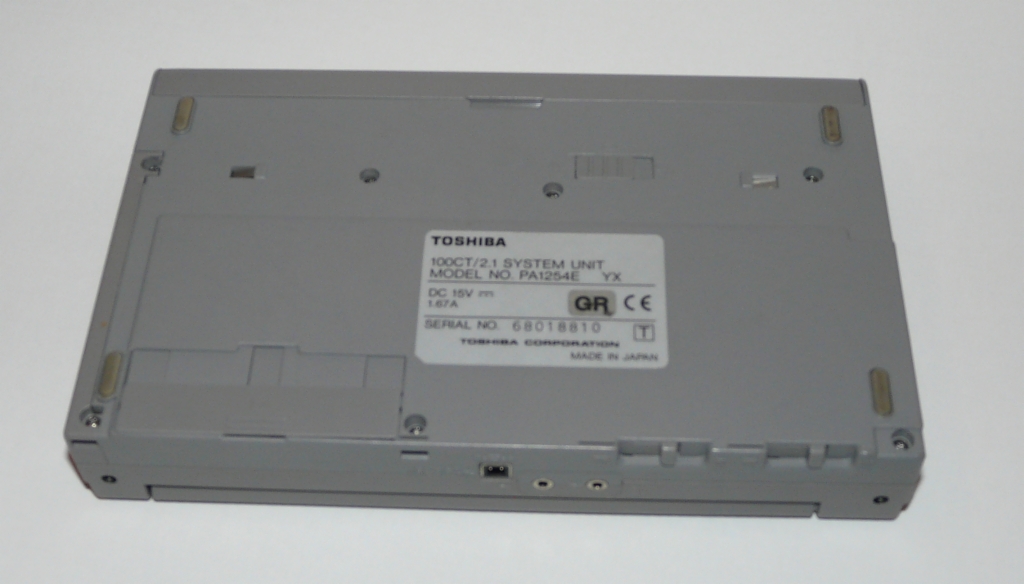
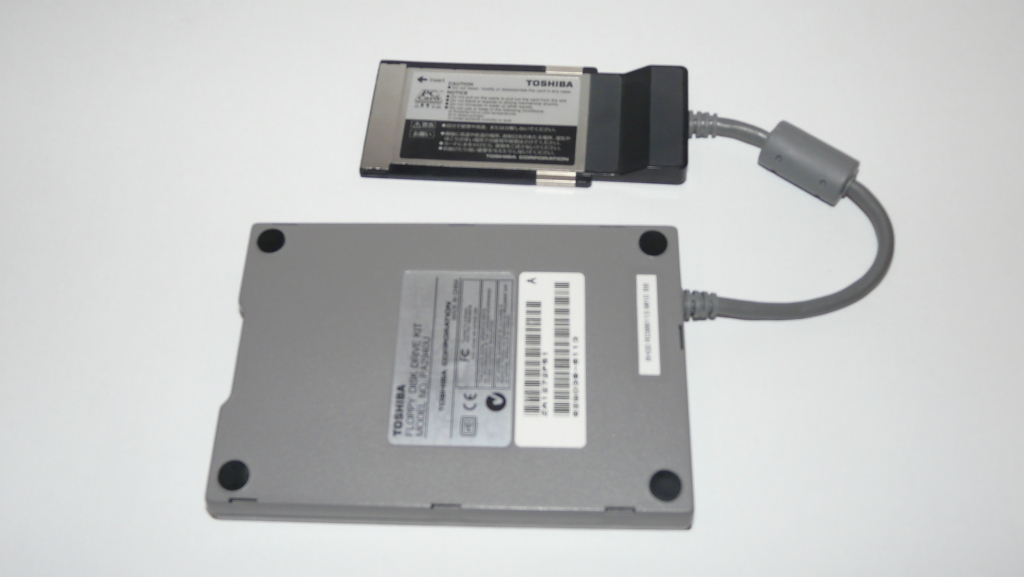
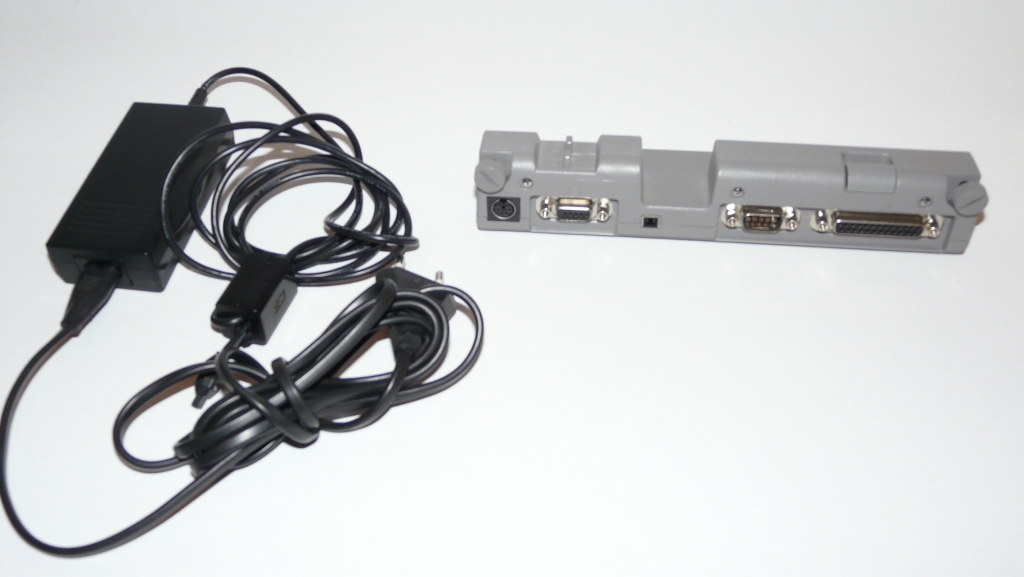
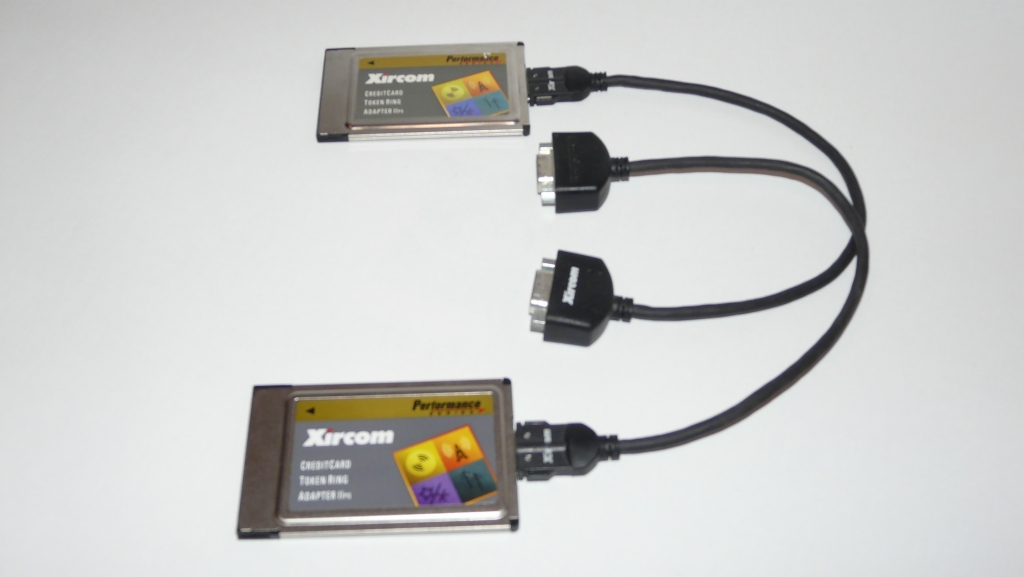
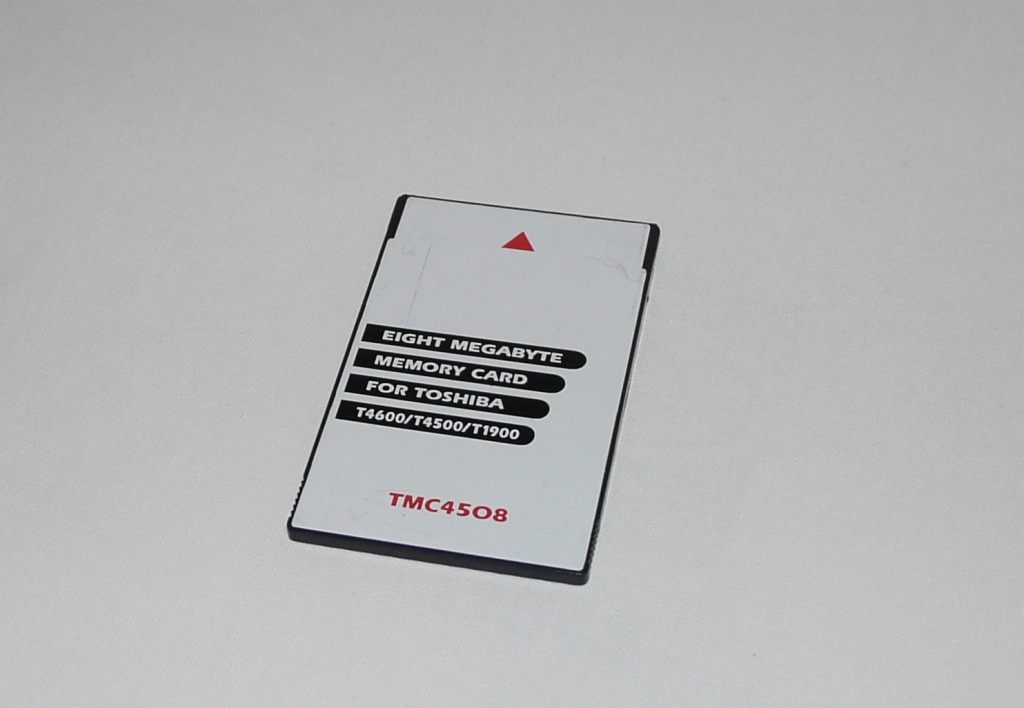
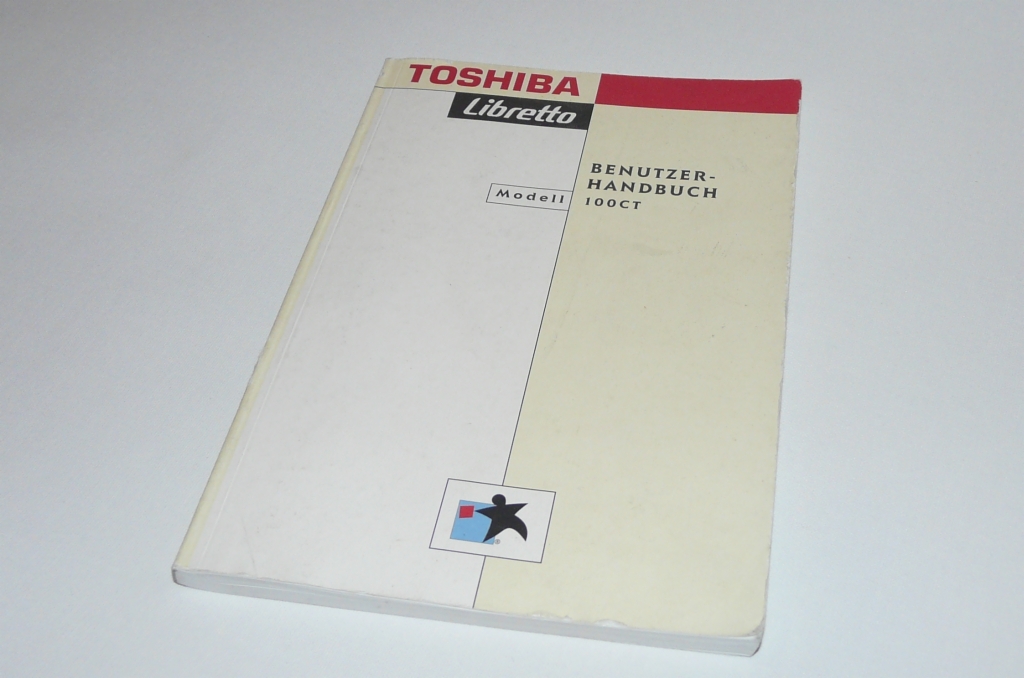
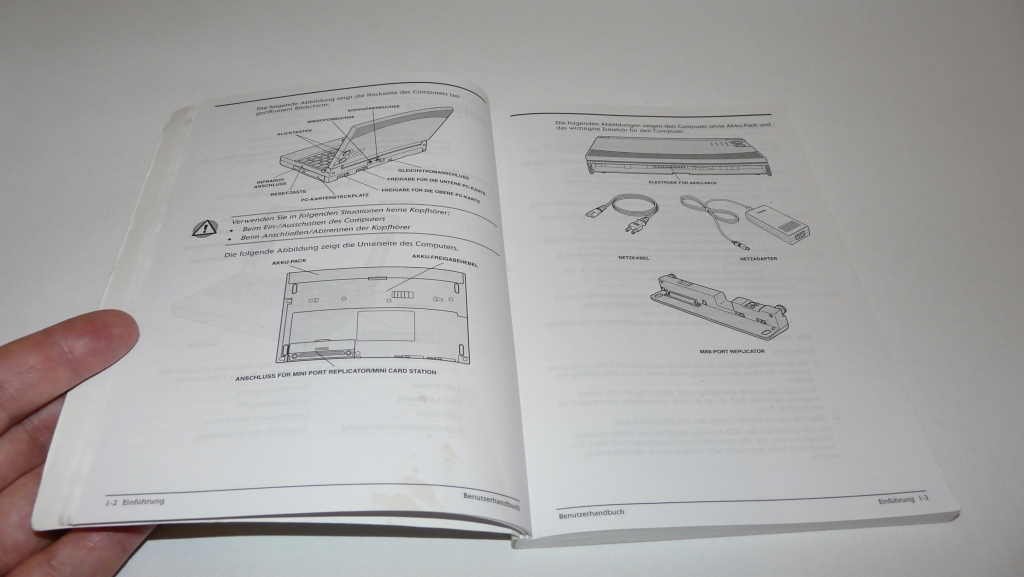
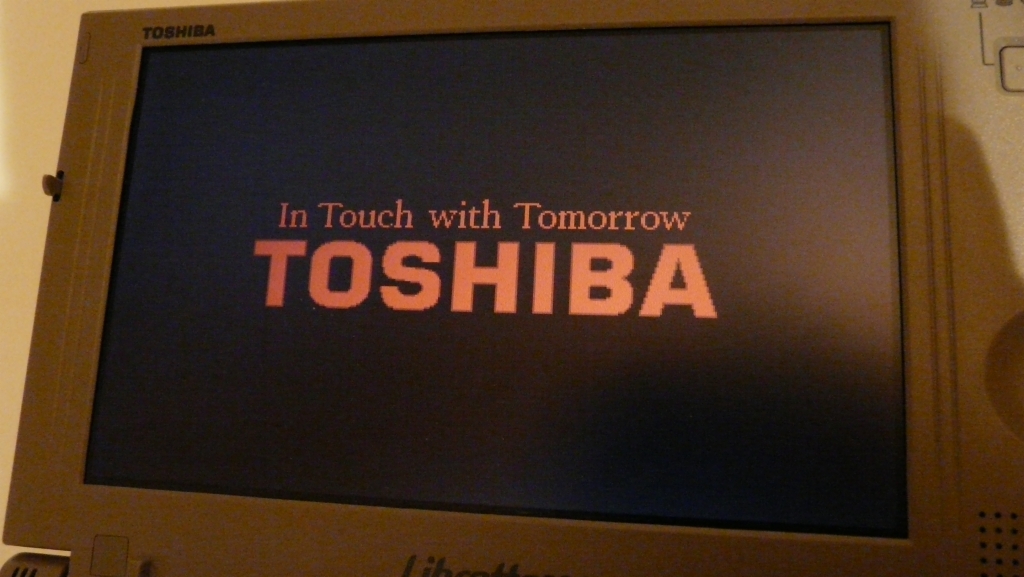
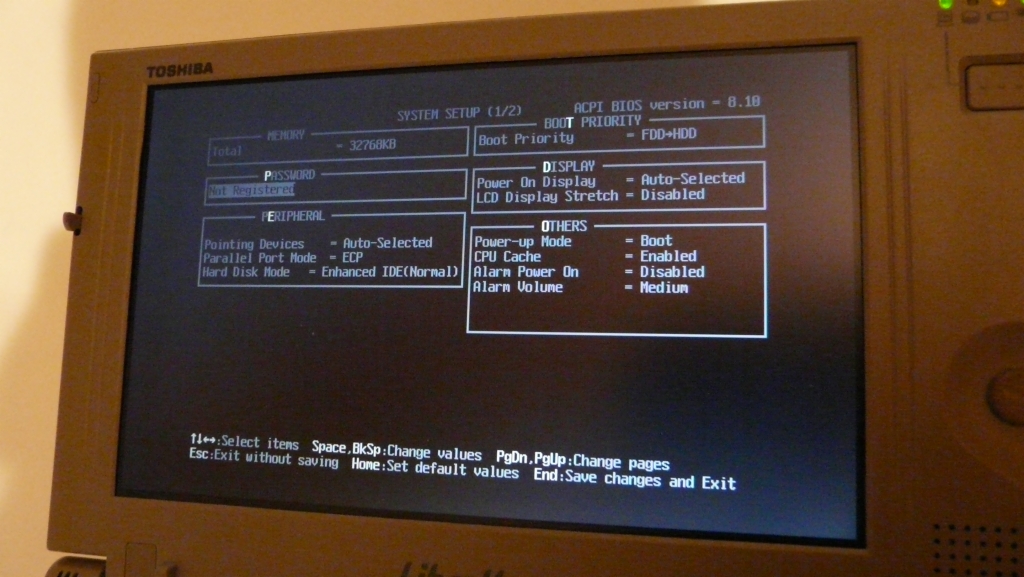
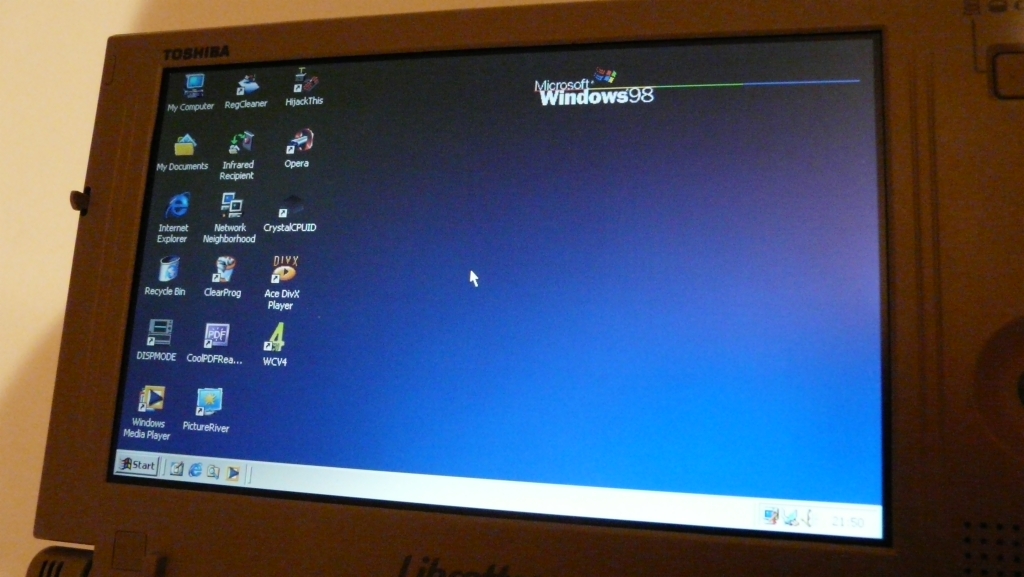
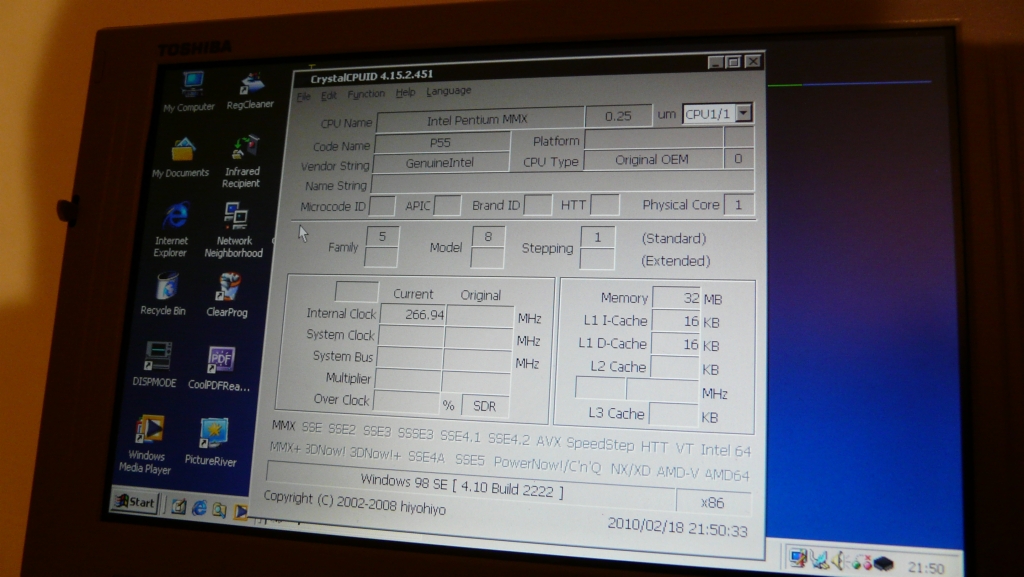

Copyright(c) 2011

